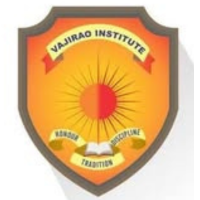How To Select The Optional Subject For UPSC Civil Services Mains Exam?

Choosing an Optional subject for the UPSC Civil Services Mains exam requires careful consideration of several factors. It's crucial to align your choice with your academic background, interests, and strengths, while also considering factors like syllabus overlap with the General Studies papers, availability of study material, and scoring potential. The Union Public Service Commission (UPSC) Civil Services Examination (CSE) ranks among the top exams in India regarding its prestige and competition. Out of its many components, the Optional Subject selection for the Mains exam is pivotal. It adds up to 500 marks towards the total Mains score, in addition to 275 marks awarded in the Personality Test. Hence, the Optional Subject becomes strategically critical in determining the fate of a candidate in the examination. Moreover, given the rich resources and expert help through IAS coaching in Delhi, Online IAS Coaching, and many IAS Coaching Centres, aspirants now have ample information and guidance to help formulate a better decision.
Selecting an Optional Subject for the UPSC Civil Services Mains Exam
The UPSC Civil Services Mains Exam offers 48 optional subjects, encompassing a wide range of disciplines. These include the humanities, social sciences, sciences, and engineering. Some popular and often recommended optional subjects include Geography, Public Administration, Sociology, Political Science & International Relations (PSIR), and History. The choice of an optional subject is crucial, as it contributes significantly to the overall score in the Mains exam. Choosing an optional subject for the UPSC Civil Services Mains exam is a crucial decision that can significantly impact your overall score. It is important to select a subject that aligns with your interests, academic background, and available resources while also considering its scoring potential and overlap with general studies papers. Read on to know the most important 7 factors to consider when choosing an Optional Subject:
1. Understand the Importance of the Optional Subject
The importance of the Optional Subject for UPSC Mains Exam cannot be understated since it accounts for 500 marks, with 250 for Paper VI and 250 for Paper VII. General Studies are common for all the candidates; with the availability of an optional subject, an aspirant can pick a subject of higher scoring potential. Some candidates even believe that their selection of an optional subject is what led them to an ultimately successful attempt. Despite this, the selection of an optional subject should not be made based on gossip, fads, or popularity. The selection should be made after thorough consideration and discussion with the mentors.
2. Assess Your Academic Background and Interests
Your academic history is a good place to start evaluating your credentials. Holding a graduate or postgraduate degree in History, Geography, Political Science, or Sociology means that you have some foundational knowledge in that area. This certainly aids in understanding advanced concepts and responding to analytical questions. But, interest and aptitude are what actually drive the matter. If you love engaging with a particular subject and can read about it for hours, that passion is what will help you face the long ordeal that is UPSC preparation. A number of IAS coaching centres have counselling sessions aimed at helping you identify your academic strengths and weaknesses.
3. Availability of Resources and Guidance
Another important consideration is the existence of dependable study materials and the guidance of an expert. Subjects like Geography, Sociology, and Anthropology are well supported with resources, experienced faculty, and test series at virtually every IAS Coaching Centre or via Online IAS Coaching. Others, like Philosophy or Agriculture, might have less coaching assistance, but with the right self-preparation strategy, they can prove to be high-scoring.
For those situated in the capital, the convenience of attending IAS coaching in Delhi comes with high faculty competition and peer rivalry, which is beneficial. Remote-area aspirants can now enjoy comparable advantages through online IAS Coaching platforms offering structured courses, video lectures, and one-on-one mentorship.
4. Understand the Nature and Scoring Pattern of the Subject
To understand the nature and scoring pattern of a subject, one needs to analyze its syllabus, the weightage of different topics, the type of questions asked, and the marking scheme. This involves examining the structure of the exam (e.g., multiple choice, descriptive), the difficulty level, and how different aspects of the subject are assessed. Certain optional subjects are famous for their objectivity, static syllabus, and predictability, making them easier to tackle within a certain timeframe. Take, for example, Public Administration and Geography; these subjects are clear-cut concerning the syllabus and past paper trends. Literature and History, on the other hand, require extensive reading and writing practice, but can be highly beneficial to deeply invested learners. It is best to look at past years' question papers, analyse the success rate, and read interviews of toppers to know the trends of scoring before a subject is finalised. Online platforms for IAS Coaching usually offer targeted information and analyses that are crucial during these stages.
5. Consider Overlap with General Studies Papers
When choosing an optional subject for the UPSC exam, it's crucial to consider the overlap with the General Studies (GS) papers. Subjects with significant syllabus overlap can streamline your preparation, potentially reducing workload and enhancing your overall understanding. An informed decision regarding your optional subject entails looking for overlap with the General Studies papers. Subjects like Political Science, Sociology, and Geography are interlinked with GS Paper I and II. This overlap is an advantage as it helps in revising and retaining concepts. Coaching experts at reputed IAS Coaching Centres often recommend this overlap for optimising the return on effort put in, with the consideration that they have a limit on effort. But, if a candidate has a particular strength in a non-overlapping subject such as Mathematics or any literature subject, then that becomes an equally good option.
6. Time Management and Preparation Strategy
Preparing for the UPSC exam can feel like a sprint, and the optional subject must match your personal timetable and learning rhythm. Some subjects are broader and deeper, demanding more time to prepare, and for working professionals or those starting late, it is advisable to choose an optional subject with a smaller and more digestible syllabus. For such cases, Online IAS Coaching can be most beneficial through their flexible learning modules, downloadable course materials, and recorded lectures that aid in balanced time management. Effective Time Management Tips for IAS Exam Aspirants are crucial for achieving goals and reducing stress. Key strategies include creating a schedule, prioritising tasks, minimising distractions, and using tools like time-blocking and the Pomodoro Technique. Regularly reviewing and adjusting your approach is also important
7. Seek Guidance but Make an Independent Decision
It is always helpful to consult with your seniors, guides, or even the faculty from your selected IAS Coaching Centre, but the ultimate decision should rest on your own strengths, likes, and limitations. Every aspirant has a distinct journey, and there is no guarantee that one strategy is effective for everyone. Do your best to resist the urge to pick an Optional Subject solely on the basis that it is in vogue or a topper performed well in it. You should assess your own skills and passions before settling on a subject that will consume several months of intense preparation.
Conclusion
Choosing the appropriate optional subject for the Mains paper of the Civil Services exam is an important decision that requires analysis. It is not only about being comfortable academically or falling under the influence of friends; it is something that can affect the outcome of the exam. Utilise all the systems in place for you, from your peers, your IAS coaching in Delhi, or even Online IAS Coaching platforms, to form your decision. Resultantly, you can improve your chances of success in the UPSC exam with the right optional subject and unmatched dedication, coupled with consistent effort and guidance.
